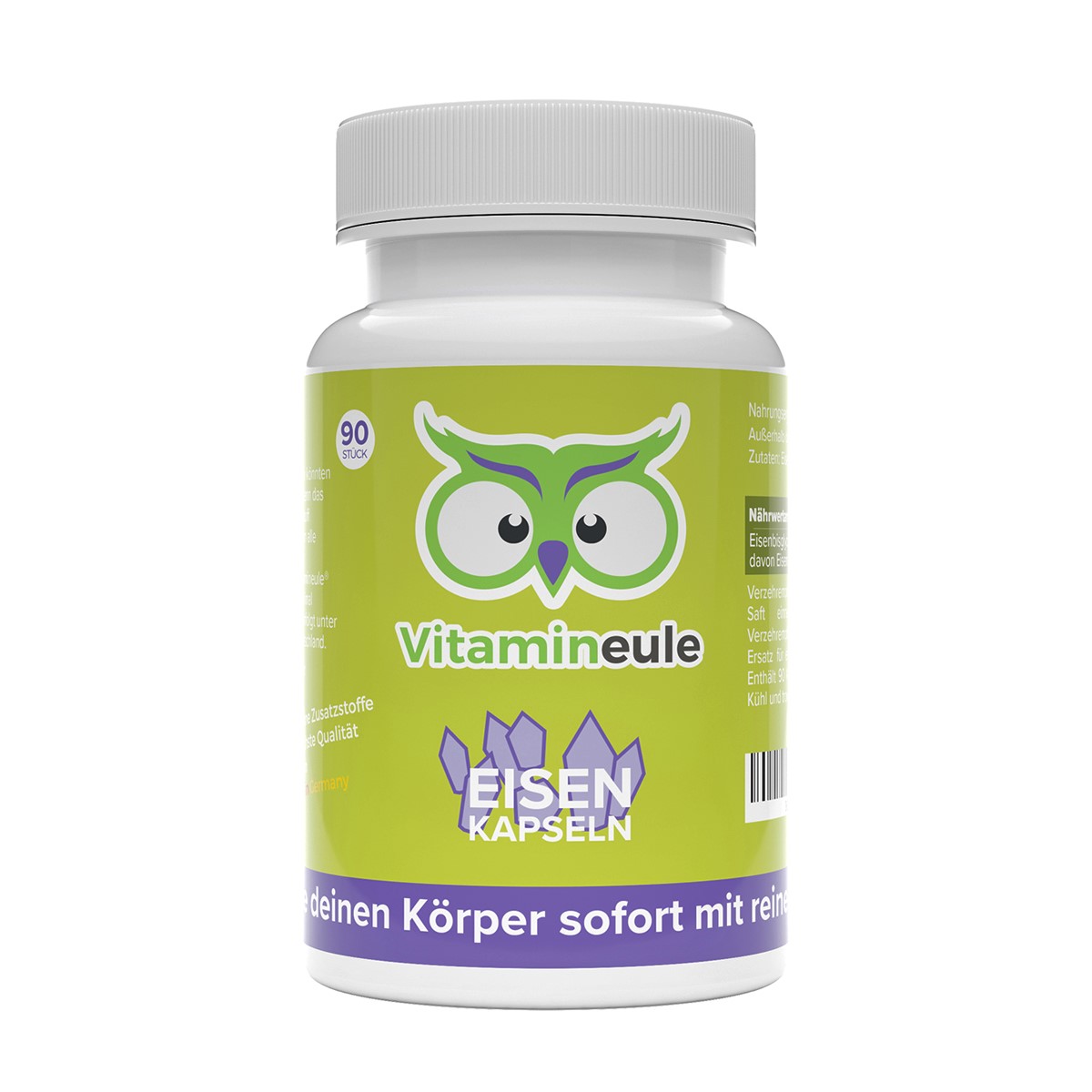
Team Vitamineule
Questions, wishes or suggestions? Just contact us by email or on Facebook.
1. what are the most important trace elements?
The human body needs fats, proteins, carbohydrates and vitamins to survive. Trace elements belong to the group of minerals. They are essential for the human organism and are responsible for many important tasks. Humans only need small amounts of these minerals. Strictly speaking, there are about 50mg per kilo of body mass. To ensure that you always have a sufficient supply of trace elements, you should attach great importance to a healthy and balanced diet. This includes plenty of fruit and vegetables, healthy fats and proteins. It is very important to always drink plenty of fluids so that the metabolism can be well stimulated.
2. iron for blood formation
Iron is an important trace element that significantly regulates the transport of oxygen in the body. With the help of iron, the oxygen that is absorbed through the lungs is bound to the blood pigment haemoglobin. This is distributed throughout the organism and is required by the cells for energy production. A chronic iron deficiency can lead to symptoms such as anaemia, tiredness, headaches and difficulty concentrating. It is therefore all the more important to correctly determine an iron level that is too low. The German Nutrition Society (DGE) recommends a daily iron intake of 10 to 15 mg for adults. Children should take in about 10 mg of iron per day.
3. zinc for energy production
Zinc is a component of numerous enzymes, as well as proteins. Zinc is essential for cell growth, wound healing and various metabolic processes. Men should take in about 10 milligrams of zinc daily. Women, on the other hand, need only 7 milligrams of the trace element. Factors such as age, weight and size should always be taken into account.
4. iodine for the thyroid hormones
Iodine is essential for the development of the nervous system and growth processes. Via the thyroid gland, iodine regulates the cardiovascular system and metabolism. However, the recommended daily intake increases with physical activity, as iodine is excreted through sweat. The recommended daily intake of iodine for pregnant and breastfeeding women is approx. 230 µg, as they must also provide for their child.
Our recommendation:
Vitamineule® Iron Capsules
In our online shop you will find our iron capsules from Vitamineule®, which are completely free of artificial additives. Vitamineule® Iron Capsules contain 56mg of pure iron per capsule in the effective form iron bisglycinate. Each tin contains 90 caps ules.In addition to fast & free shipping, we offer a voluntary six-month return guarantee on all products.
5. conclusion: what are the most important trace minerals?
Further reading:
- [Vitamins and Minerals in Oncology.]
- Nano-analytical characterization of endogenous minerals in healthy placental tissue: mineral distribution, composition and ultrastructure
- Characteristics of minerals in vesicles produced by human osteoblasts hFOB 1.19 and osteosarcoma Saos-2 cells stimulated for mineralization
- Biomineralization: From Material Tactics to Biological Strategy

